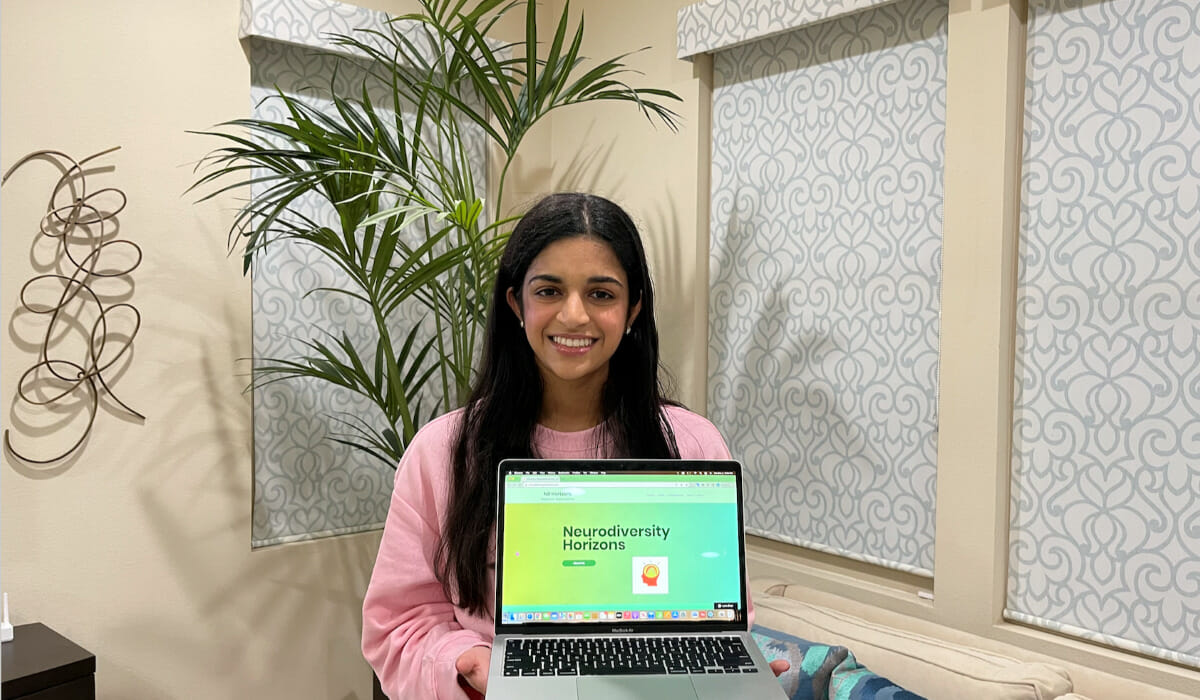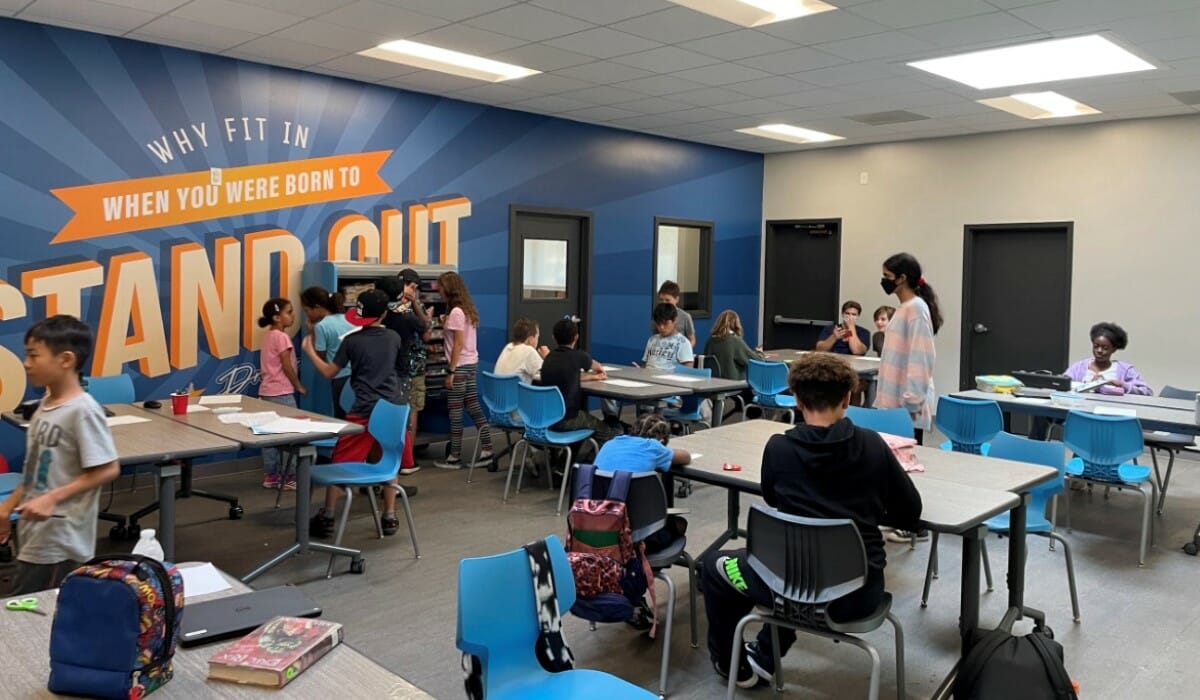Creating Awareness About Neurodiversity for a More Compassionate World

Meet Daily Point of Light Award honoree Meghana Gunturi. Read her story and nominate an outstanding volunteer or family as a Daily Point of Light.
Meghana Gunturi was born in North Carolina. Even though she lived in a quiet, isolated and reserved community for only five years, this early experience shaped the way she interacted with people. Meghana’s world changed completely when the family moved to southern California. There, she found, the energy is higher, and there is much greater diversity, a strong sense of community and a lot of social interaction. This change in environment helped develop Meghana’s leadership skills, as well as an understanding of the value of working with others.
A turning point in her journey was when a family member was diagnosed with autism and Meghana helped educate her family on neurodiversity, or the different ways the human brain and cognition work. Her family member received poor accommodations for her undiagnosed autism at first. However, Meghana’s pursuit to improve the child’s life and encourage the family to learn more about her condition professionally changed everything. Ever since her family member received an autism diagnosis, the family learned more about proper accommodation and care for the child. For example, autism isn’t something that should be cured, but rather understood as a unique way of thinking. Taking this a step further, Meghana made it her mission to educate people about neurodiversity and the needs of people with neurodivergent conditions.
Since then, Meghana founded a global nonprofit called Neurodiversity Horizons. The organization currently has 24 chapters in eight countries. Its mission is to increase public accommodation and awareness for neurodiverse people. Meghana launched a global podcast in 11 countries, with neurodivergent guests from top universities and corporations including Stanford and IBM. She has collaborated with the UMass Lowell Neurodiversity Center, local Boys and Girls clubs, youth shelters, NERC, Unicorn Children’s Foundation, Neurodiversity Network, and other organizations to increase awareness about neurodiversity. She has held summer workshops with over 80 global advocates to publish children’s books, teaching guides and travel guides for thousands of people worldwide.
What inspires you to volunteer?
Before my family member was diagnosed with autism, she was treated badly by people who misunderstood her. Once she was diagnosed and the family had been educated on neurodiversity, her life improved significantly. I recognized the value of educating people about various ways of cognition. There’s nothing wrong with being autistic or dyslexic, it’s just the beauty in neurodiversity. Educating oneself and others can positively affect the person and their family.
Describe your volunteer role with Neurodiversity Horizons.
I am the founder and CEO, meaning I am responsible for operations, overseeing board members, journalists, social media experts, chapters, volunteers, etc. I also run webinars and have held workshops on anti-bullying, mental health and neurodiversity. I am very involved and commit over 10 hours a week to my work.
What’s been the most rewarding part of your work?
Definitely, I’m touched by the many messages on our Instagram account. People talk about the impact we’ve had on them, whether they’re parents of autistic kids, or they themselves have autism or other neurodivergent conditions. Many have become involved in advocacy through our nonprofit, which excites me since neurodiversity is a new movement. I am continually learning something new every day!

What have you learned through your experiences as a volunteer?
Volunteering has shown me the value of perseverance and teamwork. When people work together for a cause they care about, they collaborate and work through struggles together for the greater good. It is inspiring to see the commitment our board, volunteers, chapters and partners have had to helping the cause.
Are there any future partnerships, programs or events that you are excited about?
We have a Women and Neurodiversity webinar coming out soon. Our journalists are getting ready to release our first educational newsletters. We have always partnered with various organizations — about a dozen so far — and are always looking to collaborate with other nonprofits. In fact, we have a collaboration in the works with Neurodiversity Hub, another organization that helps with neurodiversity education.
Why do you think it’s important for others to get involved?
It makes our world a better place. So much is going on in the world that needs to be fixed. Everyone cares about a problem, but very few ever take action, whether it’s volunteering or supporting a cause financially. If people just worked towards that one cause they resonate with, our world would be a better place, and we would leave a better environment for the next generations.
What do you want people to learn from your story?
Bringing awareness about neurodiversity is helping people who were formerly stigmatized by being labeled. The medical community often labels people and tries to cure neurodivergent conditions, when in reality we should be finding ways to support people whose thinking is simply different from the “norm,” helping them thrive and express themselves in ways that enriches the world.
I plan on advocacy being a lifelong mission. There will be no day where I discontinue my work. I want to major in neuroscience or biology, continuing on a pre-med track, while advocating for not putting labels on people.
Whatever you’re passionate about, whatever resonates with you, find a local nonprofit, charity or organization, and get involved. Take one small step to help out in your community.
Do you want to make a difference in your community like Meghana? Find local volunteer opportunities.
